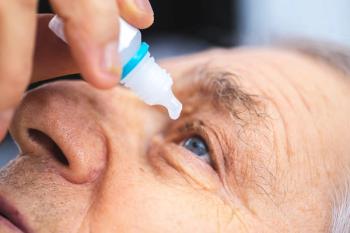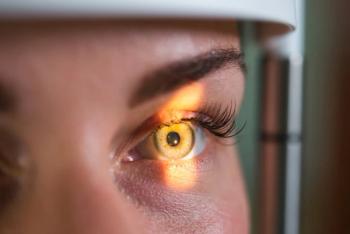
Charting the path to optimal eye emergency care at CRU 2023
Set against the backdrop of California’s Napa Valley, the second annual Current, Relevant, Useful (CRU) Eye Symposium will take place at the Silverado Resort and Spa from November 10 to 12, 2023.
Clinicians from the eye care field will delve into various subjects, including anterior segment disease, glaucoma, retina, advanced contact lenses, and myopia management. S. Barry Eiden, OD, FAAO, FSLS; Stephanie Woo, OD, FAAO, FSLS; John D. Gelles, OD, FAAO, FIAOMC, FCLSA, FSLS, FBCLA; and Laura Periman, MD, are the cochairs of the meeting, with honorary ambassador Vance Thompson, MD, FACS.
Steven A. Greenstein, MD, who is part of the faculty for the CRU Eye Symposium, recently spoke with Sheryl Stevenson, Eye Care Group editorial director, to highlight his presentation.
Editor’s note: This transcript has been edited for clarity.
We’re delighted to learn about your presentation regarding eye emergencies and traumatic brain injury. Can you tell us more?
Steven A. Greenstein, MD: We all know that eye emergencies come up every day. No matter what type of practice you run, [from] general/primary care to the most subspecialized practice, we’re sometimes surprised by what might come through the door. It’s important to be able to first identify what’s going on, to be able to assess how emerging each case is, and [to know] when we need to elevate the level of care—whether that be between primary care and subspecialty care, between optometry and ophthalmology, [or] sometimes between subspecialty private practice and tertiary care settings where certain emergencies and traumatic injuries are best handled.
How would you classify the various eye emergencies that may occur?
Greenstein: First, it’s the level of emergency. Is this something that…needs to be handled immediately? Is this something that needs to be triaged but can be managed in the current setting that it’s in?
There are also different types of emergencies based on where they’re occurring in the eye, which is going to lead you to the next place the patient needs to go or the type of treatment a patient needs.
What are some cases you may see?
Greenstein:We’re a cornea subspecialty practice, so we primarily see anterior segment emergencies here. That can be anything from a corneal abrasion [to corneal infections and ulcers], which can [both] be treated in the office. But some need even higher levels of care—traumatic injuries [such as] ruptured globes, traumatic cataracts, dislocated lenses, things like that. We repair ruptured globes in tertiary care settings, but a lot of the lens repairs can now be done in our outpatient surgery centers. [We’ll be reviewing] retinal issues spanning from retinal tears and detachments all the way to [central retinal artery occlusions] and [central retinal vein occlusions].
Awareness is important among the role of the clinician, technician, and everyone throughout the whole process. What are some key pearls?
Greenstein: The important thing is being able to maintain a level of calm in the room, both for the patient and for yourself, [which] allows you to think through the process. Part of maintaining that level of calm comes from this review of these types of emergencies.
Do you have anything else to add?
Greenstein: Last year, this was an unbelievable meeting. It far surpassed anything I could have imagined—and I imagined a lot, going to such a beautiful location like Napa [Valley]. The education was second to none. It was a very impressive group of lectures in a comprehensive way that is not seen in most other meetings around. I’m looking forward to attending again this year.
Newsletter
Want more insights like this? Subscribe to Optometry Times and get clinical pearls and practice tips delivered straight to your inbox.








































